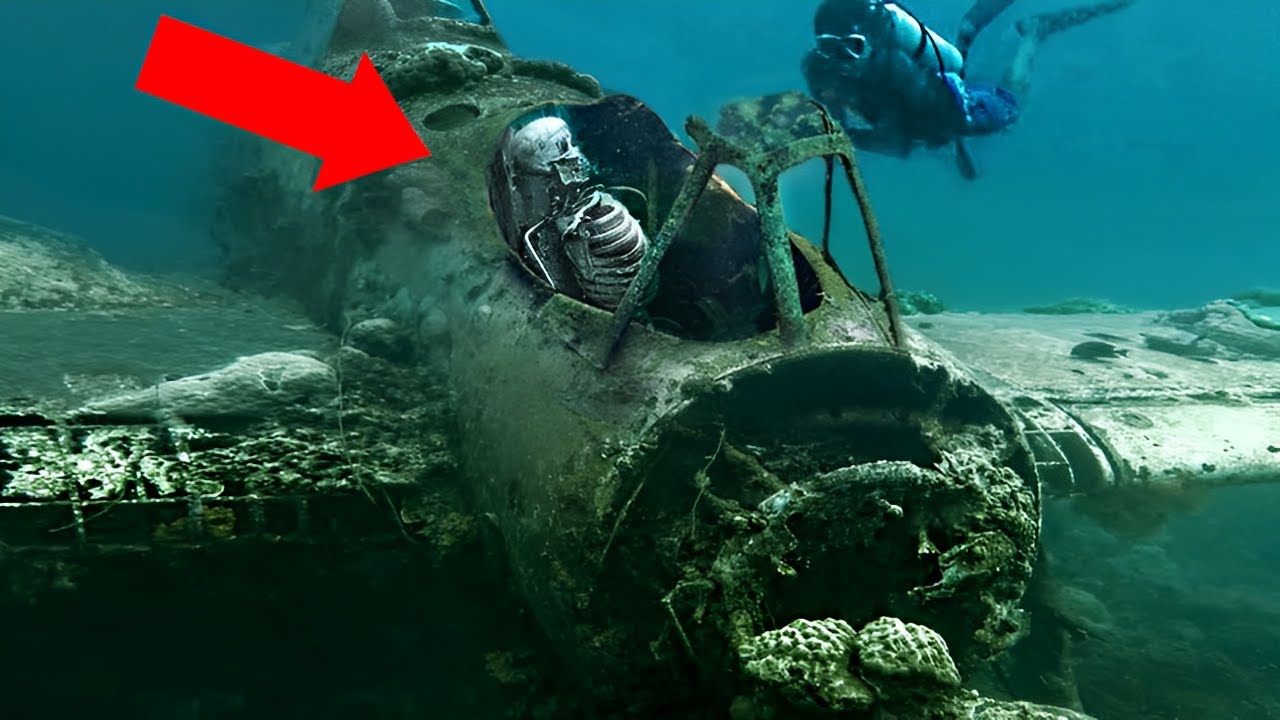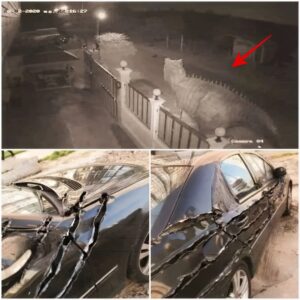In the cold, dark depths of the ocean, 1,000 meters below the surface, a team of experienced divers made a discovery that sent shivers down their spines. What began as a routine deep-sea exploration turned into a chilling encounter with a long-lost mystery. They stumbled upon the wreckage of a missing plane, with its skeletal pilot still eerily intact inside the cockpit.
The divers, part of an expedition funded by a marine research organization, initially searched for new forms of marine life and geological features. Equipped with state-of-the-art submersibles and deep-sea diving suits, they descended into the abyss, unaware of the disturbing secret that lurked behind them.
The discovery was made by diver Jack Harrison, who was the first to detect a flash of metal partially buried in the silt. As he approached, the silhouette of a plane emerged from the darkness. The plane, corroded by years underwater, was remarkably well preserved and its structure was still recognizable despite the passage of time.
“I couldn’t believe what I was seeing,” Harrison recalled. “At first I thought it was just another piece of rubble. But as I got closer, I realized it was a whole plane and my heart skipped a beat.”
The team immediately notified their support team on the surface, who began matching the aircraft’s identification numbers with records of missing aircraft. It soon became clear that this was no ordinary find. The plane matched the description of a plane that had mysteriously disappeared decades ago, leaving no trace and baffling investigators for years. 
As divers explored the wreckage of the plane, they encountered an even more macabre sight. Inside the cockpit, the skeletal remains of the pilot remained undisturbed, as if frozen in time. The bones, protected from scavengers by the plane’s cabin, were almost perfectly preserved. The pilot’s flight suit, although tattered, still clung to the bones, adding a surreal touch to the grim scene. 
“The sight of that skeleton gave me chills,” said diver María López. “It was like looking at a ghost from the past. “You could almost feel the presence of the pilot, as if he was still waiting for rescue.”
Further investigation revealed personal items belonging to the pilot, including a watch, map and logbook. These artifacts, now covered by layers of marine growth, provided poignant glimpses of the final moments before the plane’s tragic descent into the depths of the ocean.
The mystery of how the plane ended up so far from its intended route remains unsolved. Initial theories suggest a catastrophic failure or navigation error, but the true cause may never be known. The deep-sea environment, with its treacherous currents and shifting sediments, has kept this secret well hidden until now.
For the families of those who disappeared aboard the plane, this discovery represents closure and heartbreak at the same time. The recovery of the pilot’s remains offers the opportunity to lay him to rest in dignity, but the disturbing nature of the find serves as a stark reminder of the unforgiving nature of the ocean.
The wreck and pilot’s skeleton have been carefully documented and preserved, with plans to display them in a maritime museum. This exhibit will honor the memory of the lost pilot and the mystery that surrounded his final flight, allowing future generations to reflect on the depths of the ocean and the secrets it holds.
When the divers surfaced, the weight of their discovery hung in the air. The ocean had revealed one of its darkest secrets, revealing a story of tragedy, mystery and the relentless passage of time. For those who ventured into the abyss, the image of the skeletal pilot will forever haunt their memories, a ghostly reminder of the hidden horrors of the deep.





